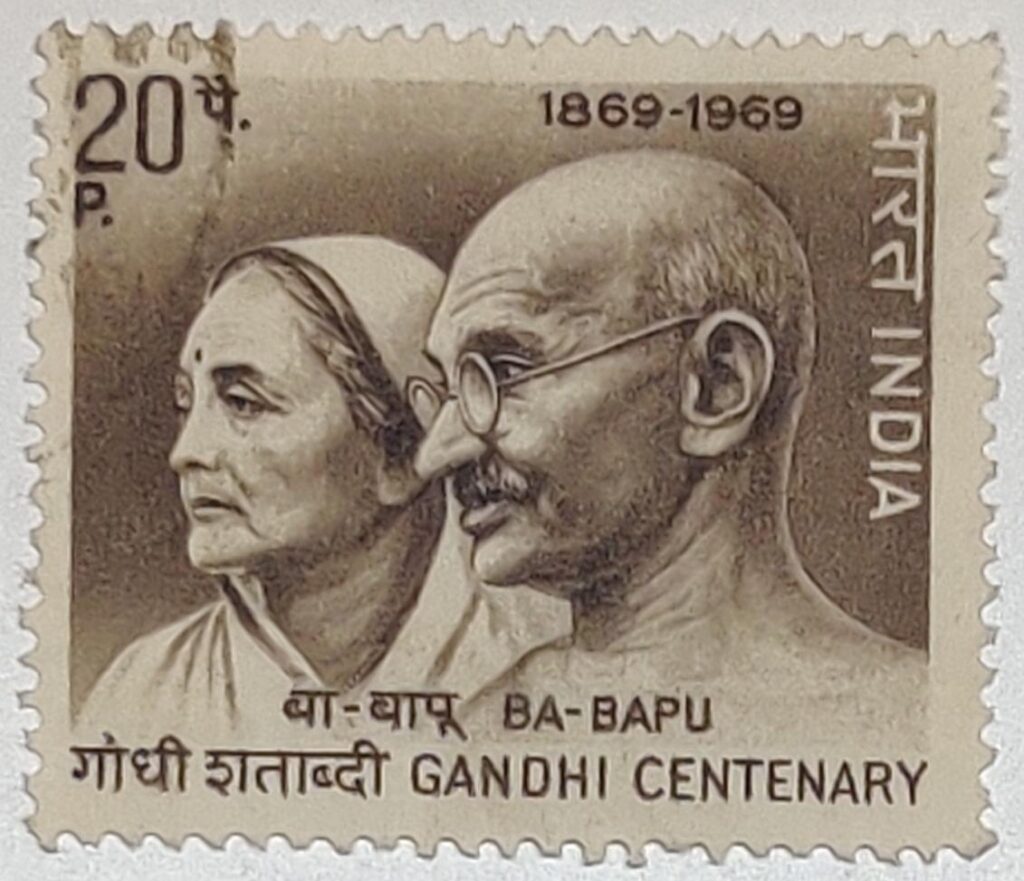
In the history of begging for a public cause, Gandhiji created a world record.
He discovered this capacity in himself in South Africa when he was in charge of collection of subscriptions from the members of the Natal Indian Congress.
Late one evening, he went to a wealthy donor and expected him to pay Rs. 80. All persuasion failed and he was offered only Rs.40. Gandhiji was hungry and tired, yet he did not give up. He sat up there the whole night and at daybreak received Rs.80. He certainly was a very stubborn beggar.
During his travels, Gandhiji played the role of an accomplished beggar. He was welcomed by crowds at almost every station. People flocked to catch a fleeting glimpse of the Mahatma. Gandhiji knew that he could not let this opportunity slip by without charging the ‘price’ for his ‘darshan’ and so his begging hand was immediately stretched out of the window. The people experienced a glow of joy and satisfaction in placing copper coins in his palm.
When an ordinary beggar receives a coin, he feels delighted; but in the case of this strange ‘Prince of Beggars,’ people felt obliged in placing coins in his hands. Some times, an old woman in torn and tattered clothes would make her way through the crowds, put a pice in Gandhiji’s palm, look at him with devotion for a while and tread her way back. In this way, Gandhiji smartly collected a decent amount at every station, even during nights.
As clever and experienced a beggar as he was, Gandhiji took special care to learn at least the word for ‘pice’ in every language. He did not fret or fume at the crowds if they woke him up with loud cries of ‘Mahatma Gandhi ki Jai’. This was a small price he gladly paid for obtaining money to achieve swaraj. And so he quietly got up, opened the window if it were closed, and started his work of collection.
There were times when being unusually tired, Gandhiji would not wake up at a certain station. A few persons would then enter his compartment and shake him to awake him despite protests from the members of the party, and after placing some coins in his hands walk away shouting ‘Mahatma Gandhi ki Jai.’ Gandhiji would smile and again be down on the berth and fall asleep.
On one occasion when a journalist stepped forward to ask him some questions, Gandhiji asked him in return, “Will you please let me use your hat as my begging bowl?”
Of course, the hat was immediately surrendered and Gandhiji instantaneously stretched it before the owner himself to begin with. The journalist had to surrender with a laugh, a few silver coins too.
Gandhiji was very particular about the spending of public money. He sent a receipt of all the gifts and submitted a detailed account of all expenditure. If money was given only to feed the needy, he refused to accept it. He felt that the real hunger of a person was not for a morsel of food, but for decent living as a self-respecting human beings. He disapproved of the custom of giving alms instead of work to the poor.
It is said that beggars cannot be choosers. But this rule did not apply to Gandhiji. With him, in fact, it was just the reverse. If you were wealthy, he would demand gold and silver; if poor, an honest penny; if you could spare no coins, he would ask you to pay in hand-spun yarn, if you could not do even that, you have to fast and save and pay.
Gandhiji was one beggar from whom none could hide or run away.
Adapted from This was Bapu edited By RK Prabhu
www.gandhiashramsevagram.org
